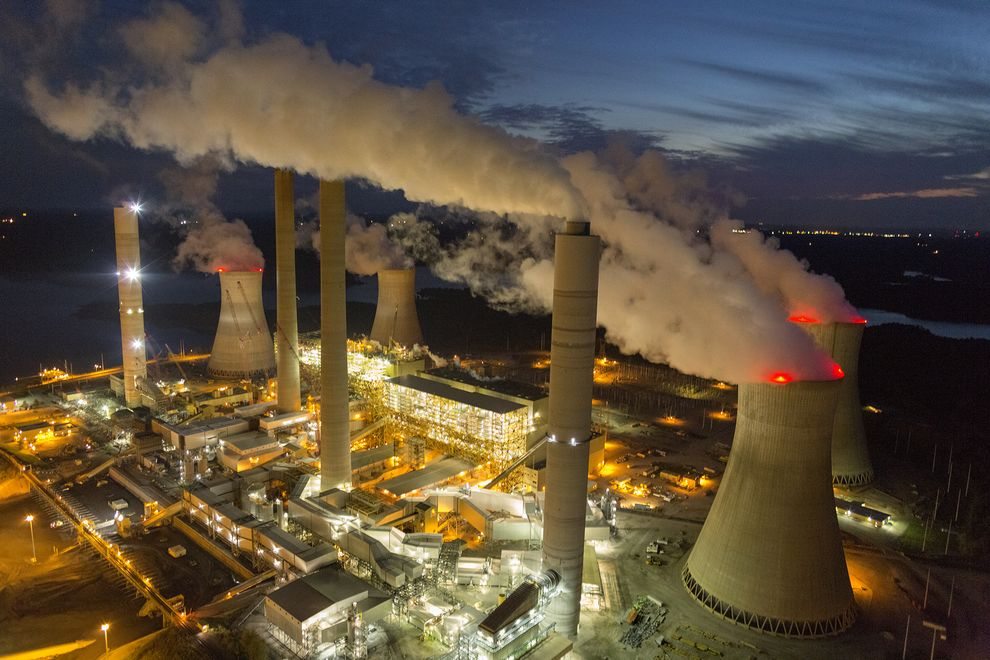Our prices are affordable with no hidden fees.
Our team members are all friendly.
No hassle, no guesswork, simple easy contracts.
Join our long list of satisfied customers.
We always deliver and pick up the container on time.
What is pollution of the air?
Air pollution is a mix of natural and man-made substances in the air we breathe. It is usually split into two groups: air pollution outside and air pollution inside. We control the quality of the air outside, which is called the ambient air quality. For more than forty years, we have been checking the ambient air quality in Georgia.
Criteria Pollutants
The Clean Air Act (CAA) tells the U.S. Environmental Protection Agency (EPA) to find pollutants that could harm public health or welfare and set National Ambient Air Quality Standards (NAAQS) for six common pollutants called “criteria” pollutants. The EPA sets NAAQS for criteria pollutants based on what we know now about how they might affect health. There are two standards that make up the NAAQS:
- Primary standards that preserve public health
- Secondary norms that protect public welfare and environment (including damage to animals, crops, plants, buildings, and diminished visibility) (includes damage to animals, crops, vegetation, buildings, and reduced visibility).
More information about the six criterion air pollutants is accessible below.
- Carbon Monoxide
- Oxides of Nitrogen
- Sulfur Dioxide
- Ozone
- Lead
- Particulate Matter
Of the six criterion pollutants, ground-level ozone is now the only pollutant in Georgia not fulfilling the NAAQS.
Hazardous Air Pollutants
Cancer and other major health effects have been linked to exposure to hazardous air pollutants (HAPs) or air toxics. The EPA has identified 187 distinct hazardous air contaminants in the United States (EPA). The Toxic Release Inventory is a national database maintained by the US Environmental Protection Agency that contains data on toxic substances released into the environment (TRI).

In Whom Does It Resonate?
Air pollution poses a greater threat to the health of the following groups than to others:
- Those who already have health problems in the cardiovascular or respiratory systems are more likely to feel the negative consequences of air pollution.
- High levels of air pollution increase the likelihood of hospitalisation for the elderly.
- Because of their still-evolving lungs, their high activity levels, and the prevalence of asthma, children are particularly vulnerable to the adverse effects of air pollution.
- Increased hospitalizations to the neonatal intensive care unit and fatalities among infants aged 28 days and older have both been linked to particulate pollution.
Some groups have been shown to be at a higher risk of being affected by air pollution than others:
- Adults in urban settings vs those in rural locations.
- Researchers have found that minorities, especially those living in highly segregated communities, are disproportionately affected by air pollution. The extent of residential segregation and the racial makeup of surrounding areas were shown to be more significant in explaining people’s exposure to air pollution than their own socioeconomic status or race, according to a different study. Researchers also discovered that people of colour were exposed to far higher levels of nitrous oxide emissions than whites.
Why is water pollution such a big concern in Georgia?
Almost every company operating in Georgia is subject to some form of law. It’s possible that water contamination is an environmental concern that yours must account for. Even if your business is located far from any body of water, it nonetheless may be responsible for damaging local water supplies through everyday operations.
Common water pollution causes include fertilizers. Chemicals, metals, and solvents used in manufacturing are also major contributors to pollution. It is possible for these chemicals to enter the water supply after being employed on crops and soil in agricultural operations. Underground seepage of these pollutants into groundwater supplies poses a threat to local ecosystems as well as human health.
But that’s not the only risk you face. Wells and holes drilled into Georgia’s water table pose a risk of releasing harmful chemicals into the drinking water supply, as well as the state’s laundry and shower water. It is possible for chemicals that do not dissolve in water to contaminate drinking water and other water sources that marine life and wildlife rely on. The disruption of a region’s biological and environmental equilibrium may have far-reaching and unpredictable repercussions.
This is why both the federal government and Georgia have passed legislation to protect and restore water quality. Your company may be subject to hefty fines and other financial and non-financial consequences if it violates environmental laws, rules, and regulations. If you want to avoid problems down the road, it can be worth your effort to research your environmental rights and duties in advance.
Savannah Dumpster Rentals EZ serves as a catalyst for change, offering accessible and efficient services that encourage proper waste disposal. Through their initiatives, we contribute to the reduction of pollution in Savannah, promoting a cleaner and healthier local environment.
Our prices are affordable with no hidden fees.
Our team members are all friendly.
No hassle, no guesswork, simple easy contracts.
Join our long list of satisfied customers.
We always deliver and pick up the container on time.
